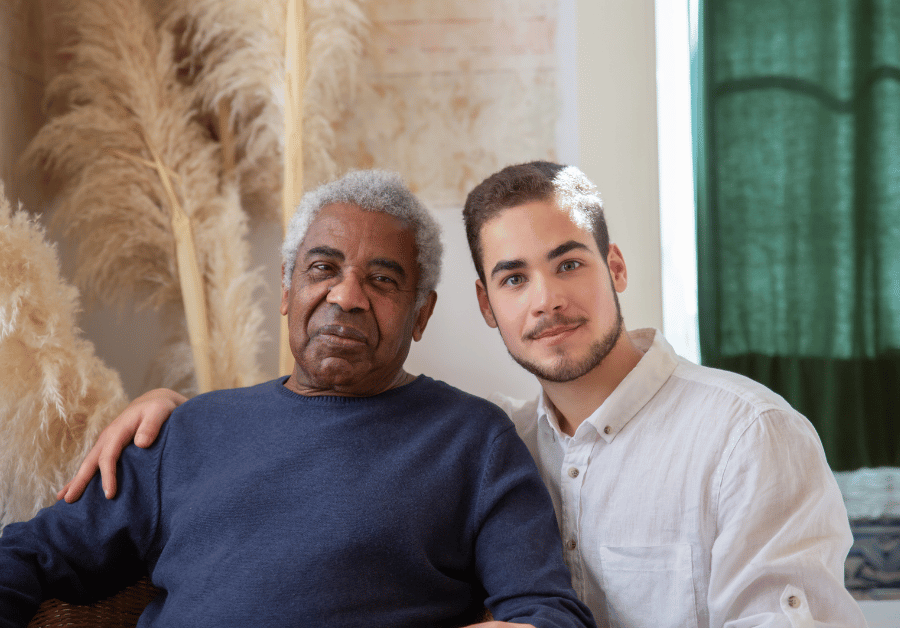Respite Care Support for Citizens: Your Comprehensive Australian Guide
Respite Care Support for Citizens: Your Comprehensive Australian Guide
In the bustling lives of Australian families, the role of carers is invaluable, yet often demanding. Providing continuous care for a loved one, whether an older Australian, someone living with a disability, or a child with additional needs like autism or ADHD, requires immense dedication. This is where respite care support for citizens becomes not just a convenience, but a vital lifeline. Respite care offers temporary relief for primary carers, allowing them to rest, recharge, and attend to their own needs, while ensuring their loved one continues to receive high-quality care and support services. At Alliance Care Support, we understand these challenges and are committed to providing exceptional respite care solutions across Australia, from vibrant Sydney to the serene landscapes of Tasmania.
This comprehensive guide delves into every aspect of respite care in Australia, surpassing existing information by offering a deeper understanding of available options, funding mechanisms, and how to navigate the system. We aim to provide more value, clarity, and practical advice for carers and care recipients alike.
Understanding Respite Care: Planned, Unplanned, and Emergency Solutions

Respite care is a flexible service designed to provide short-term breaks for carers. These breaks can be planned, unplanned, or even for emergency respite. Understanding the distinctions is key to accessing the right support when you need it most.
- Planned Respite: This is pre-arranged care, allowing carers to take a holiday, attend appointments, or simply have regular personal time. It’s a proactive approach to prevent carer burnout and maintain well-being. Planned respite can range from a few hours a week to several weeks of residential respite.
- Unplanned Respite: Sometimes, unexpected events occur. An unplanned respite need might arise due to a sudden illness of the carer or an unforeseen commitment. While less common than planned respite, providers like Alliance Care Support strive to offer flexible solutions.
- Emergency Respite Care: This is for urgent situations where the primary carer is suddenly unable to provide care due to a crisis, such as a medical emergency. Emergency respite is crucial for ensuring the continuity of care and safety of the care recipient. Services Australia, My Aged Care, and the Department of Veterans' Affairs have provisions for such critical needs, though availability can vary.
Whether you’re in Melbourne, Brisbane, or Perth, the availability of these types of care services is essential for maintaining the health and stability of the caregiving relationship.
Who Can Benefit from Respite Care in Australia?
Respite care support for citizens is broadly available across various demographics in Australia, ensuring that diverse needs are met. The top-ranking articles often touch on specific groups, but we'll consolidate and expand on who can truly benefit.
Older Australians and Aged Care Respite
For older Australians that need support, respite care is a cornerstone of the aged care system. It allows family members and informal carers to take a break, knowing their loved one is in safe hands. This can involve short stays in a residential aged care home, providing a taste of the permanent residents' experience without the long-term commitment. My Aged Care is the primary gateway for accessing these services, determining eligibility and connecting individuals with appropriate residential aged care providers.
Individuals with Disability, Autism, or ADHD
Carers of individuals with a disability, autism, or ADHD also greatly benefit from respite care services. The National Disability Insurance Scheme (NDIS) plays a critical role here, funding various forms of respite as part of a participant's individual plan. This support can help include children and adults with additional needs, fostering their independence while providing vital breaks for their families. The Australian Government's Inclusion Support Program also offers assistance in certain contexts to facilitate access to mainstream services for children with additional needs. Alliance Care Support, as an NDIS-approved provider, offers tailored respite options, including Supported Independent Living (SIL) and in-home care, designed to empower participants and provide peace of mind for their carers.
Veterans and War Widows(ers)
The Department of Veterans' Affairs (DVA) provides significant respite care support for citizens who are veterans or war widows(ers). As Australian citizens, they have the same right of access to 'mainstream' services, but the DVA also offers specific programs like Veterans' Home Care (VHC) which includes a respite care component. This ensures that those who have served our nation, and their carers, receive the necessary breaks and support. The DVA's commitment to these vital care services is unwavering, ensuring that veterans and their families in places like Adelaide and Hobart are well-supported.
Types of Respite Care Services Available in Australia
Respite care isn't a one-size-fits-all solution. Australia offers various models to suit different needs and preferences, ensuring flexible support services.
- In-Home Respite: This involves a support worker coming into the care recipient's home, allowing them to remain in their familiar environment. This is often preferred for short breaks and can include personal care, domestic assistance, or companionship. Alliance Care Support excels in providing compassionate in-home care, ensuring comfort and continuity.
- Residential Respite Care: This involves the care recipient staying temporarily in an approved aged care home or disability accommodation facility. It offers a structured environment with 24/7 supervision, clinical care if needed, and opportunities for social engagement. It's an excellent option for longer breaks or when a higher level of care is required. Many facilities in major cities like Sydney, Melbourne, and Brisbane offer dedicated residential respite beds.
- Community Access Respite: This type of respite involves support workers assisting the care recipient to participate in community activities, giving the carer a break while fostering the care recipient's social engagement.
- Centre-Based Day Respite: Care recipients attend a day centre for a few hours or a full day, participating in activities and socialising, before returning home. This is often available through various care department initiatives.
Navigating Funding and Subsidies for Respite Care

Understanding the financial aspects of respite care support for citizens is crucial. The Australian Government provides various subsidy and supplements to make care affordable and accessible.
My Aged Care Funding
For older Australians, My Aged Care is the central point for accessing government-funded aged care services, including respite care. After an assessment by an Aged Care Assessment Team (ACAT), individuals may be approved for residential respite, home care packages, or other short-term care options. The government pays a subsidy directly to the provider for eligible care, helping to cover the costs.
NDIS Funding for Disability Respite
Under the National Disability Insurance Scheme (NDIS), respite care services are funded through a participant's individual plan, typically under 'Core Supports - Assistance with Daily Life' or 'Capacity Building Supports'. The NDIS aims to empower participants to choose their providers and services, including flexible respite care options that suit their unique needs. Alliance Care Support works closely with NDIS participants to maximise their plan funds for effective respite, ensuring that both the participant and their carer receive optimal support.
Department of Veterans' Affairs (DVA) Subsidies
The Department of Veterans' Affairs offers specific respite care subsidies for eligible veterans and war widows(ers). These subsidies help cover the cost of short-term care, often through programs like Veterans' Home Care. The DVA's aim is to provide comprehensive care services that complement mainstream aged care where necessary. It's important for residents in respite care under DVA to understand the specific entitlements and any associated service fees that may apply.
Australian National Aged Care Classification (AN-ACC)
The Australian National Aged Care Classification (AN-ACC) funding model impacts how residential aged care facilities, including those offering residential respite care, receive funding. Learn about the subsidies and supplements available for residents in respite care under the AN-ACC framework. Services Australia automatically pays this supplement for eligible care, ensuring providers receive adequate funding to deliver quality services. This framework aims to ensure pricing advice reflects the costs to deliver care efficiently.
Understanding Fees and Costs Associated with Respite Care
While government subsidies cover a significant portion of respite care costs, there are often fees that Australian citizens may be required to pay. Navigating fees explaining fees to your residents basic daily fee, booking fee, and additional service fees can be complex, but transparency is key.
- Basic Daily Fee: This fee contributes to daily living costs like meals, laundry, and utilities. It's a standard fee set by the Australian Government and applies to both permanent residents and those in residential respite care.
- Booking Fee: For residential respite, a refundable booking fee may be charged by some facilities to secure a bed. This fee is generally capped and should be explained clearly by the provider. The Department of Veterans' Affairs typically does not cover the cost of refundable booking fees.
- Additional Service Fees: These are for optional services that go beyond the basic care, such as hairdressing, specific outings, or premium accommodation. It's vital to clarify what constitutes an additional service and its associated fees extra to ensure there are no surprises.
- Extra Service Fees: Some facilities offer 'extra services' which are higher standard services and accommodation. These incur additional fees.
The government regularly releases information on current rates and updates, often through consultation papers on the pricing framework for Australian aged care services. Understanding the ongoing cost collections helps to evaluate the costs associated with residential respite care and ensure that pricing advice reflects the actual costs to deliver these essential services.
The Application Process: How to Access Respite Care Support

Accessing respite care support for citizens involves a few steps, depending on the type of care needed and the individual's circumstances. Whether you're in Perth, Adelaide, or any regional centre, the process generally follows these guidelines:
- Initial Contact & Assessment:
- For older Australians seeking aged care respite, start with My Aged Care. Call 1800 200 422 or visit their website to arrange an assessment. An ACAT assessment will determine eligibility and the type of care needed.
- For individuals with disability, ensure you have an NDIS plan in place. Your NDIS plan will outline your funded supports, which can include respite care services. If you don't have a plan, you'll need to apply for NDIS funding.
- For veterans, contact the Department of Veterans' Affairs (DVA) directly to inquire about their respite care programs and eligibility criteria.
- Finding a Provider: Once assessed and approved for funding, you can start looking for a suitable provider. My Aged Care provides a service finder, and for NDIS participants, the NDIS portal or support coordinators can help. For DVA, their website lists approved providers. This is where Alliance Care Support comes in, offering tailored solutions for NDIS participants and those seeking private respite.
- Service Agreement & Planning: Work with your chosen provider to develop a service agreement that outlines the specific care services, schedule, and any associated fees. This ensures clarity and meets your particular need support either planned or unplanned respite requirements.
Navigating aged care and disability support systems can be complex, but organisations like Alliance Care Support are here to assist. We can help you understand your entitlements and connect you with the right services, ensuring a smooth transition into quality respite care.
The Profound Benefits of Respite Care for Carers and Care Recipients
Discover How Respite Care Can Support Your Family
Contact Us TodayThe value of respite care support for citizens extends far beyond a simple break. It offers multifaceted benefits for both carers and the individuals they support, strengthening the entire care ecosystem.
For Carers: Renewed Energy and Well-being
- Prevents Burnout: Caregiving can be physically and emotionally exhausting. Respite provides a crucial opportunity for carers to rest, pursue hobbies, socialise, or simply have quiet time, preventing burnout and promoting mental health. This is especially important in demanding environments like those in busy urban centres such as Sydney or Melbourne.
- Maintains Personal Life: It allows carers to maintain their own relationships, attend to personal appointments, or continue working, fostering a sense of balance and preventing isolation.
- Strengthens the Care Relationship: A well-rested carer is a more patient, effective, and compassionate carer. Breaks can reduce stress and frustration, leading to a healthier and more positive caregiving dynamic.
For Care Recipients: New Experiences and Continued Support
- Change of Scenery and Socialisation: Residential respite care or day programs offer new environments and opportunities to socialise with others, preventing monotony and fostering new connections. This is particularly beneficial for residents in respite care who might otherwise have limited social interaction.
- Continued High-Quality Care: During respite, care recipients continue to receive professional, tailored care that meets their specific needs, whether it's personal care, medication management, or support with daily activities.
- Promotes Independence: For individuals with disabilities, respite can be an opportunity to develop new skills in a different environment, fostering greater independence and self-reliance. Alliance Care Support's NDIS-approved homes are designed to promote this very aspect.
Ultimately, respite care services contribute to the overall well-being and quality of life for both the carer and the individual receiving care, creating a sustainable and supportive environment.
Alliance Care Support: Your Trusted Partner in Respite Care Across Australia
At Alliance Care Support, we are deeply committed to empowering individuals with disabilities and providing invaluable respite care support for citizens throughout Australia. Our mission is to ensure that every participant receives tailored care, support, and resources designed to enhance their independence and quality of life. We understand the critical importance of a break for carers, and we provide compassionate, professional services that you can trust.
Our NDIS-approved homes, strategically located to serve communities in major cities like Sydney, Melbourne, Brisbane, Perth, and Adelaide, are equipped with advanced accessibility features. These features ensure safety, comfort, and foster an environment where participants can thrive. We offer a range of comprehensive care services, including:
- Supported Independent Living (SIL): Providing robust support for participants to live as independently as possible in a shared or individual setting.
- In-Home Care: Delivering personalised support directly in the comfort of your own home, maintaining familiarity and routine.
- Respite Services: Offering flexible, short-term care solutions that give carers a much-needed break while ensuring continuous, high-quality support for their loved ones. Whether it's planned, unplanned, or emergency respite care, we strive to meet your needs.
We work closely with families and individuals, ensuring our care services align with personal goals and NDIS plans. Our team of dedicated professionals is passionate about creating supportive communities and enabling clients to lead fulfilling lives. We believe that everyone deserves the opportunity to live with dignity and achieve their aspirations, and our respite care programs are designed to facilitate just that.
Respite care is short-term, temporary support for individuals who require ongoing care, designed to give their primary carers a break. It benefits a wide range of people in Australia, including older Australians, individuals living with disabilities, children with autism or ADHD, and veterans.
You can access government-funded respite care through different channels:
Older Australians: Apply via My Aged Care for an ACAT assessment.
People with Disabilities: Use your NDIS plan to fund respite services.
Veterans: Contact the Department of Veterans’ Affairs (DVA) for available respite programs.
Australia offers several models to suit different needs, including:
In-home respite: Care provided in the recipient’s home.
Residential respite: Short stays in an aged care home or disability accommodation.
Community access respite: Support to engage in social or community activities.
Centre-based day respite: Day programs with activities and care.
Yes, in most cases you may still need to pay certain fees. These may include a basic daily fee, booking fees for residential care, and optional extra service fees. The exact amount depends on your funding type, the provider, and the level of care required.
Conclusion: Empowering Australian Citizens Through Quality Respite Care
Respite care support for citizens is an indispensable component of Australia's social and healthcare landscape. It acknowledges the dedication of carers and champions the well-being of those who require ongoing support. From older Australians navigating aged care to individuals with disabilities, children with additional needs, and our valued veterans, access to quality respite care services is fundamental.
By understanding the different types of respite, navigating funding options like My Aged Care, NDIS, and Department of Veterans' Affairs subsidies, and being aware of associated fees, Australian families can make informed decisions. The goal is always to provide seamless, compassionate care that benefits everyone involved, fostering stronger communities and healthier family units across the nation.
At Alliance Care Support, we are proud to be at the forefront of delivering exceptional respite care support. Our commitment to empowering individuals and supporting carers is unwavering. If you or your loved one could benefit from a supportive, professional, and NDIS-approved respite care solution, we invite you to learn more about how we can help you achieve your goals and enhance your quality of life.
Take the first step towards renewed well-being and exceptional care today. Visit Alliance Care Support to explore our services and discover how we can assist you.
